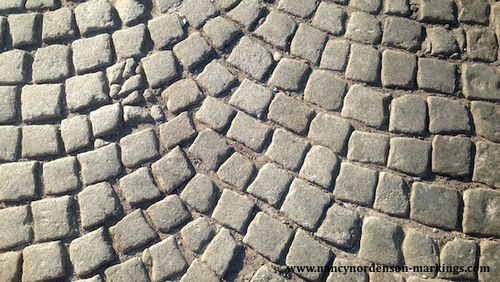A couple weeks ago my husband and I went to see the new film, The Florida Project. When I first saw the film’s poster in our local theater months ago, I had made a quick mental note to see it. Being as I grew up in coastal Florida, I imagined that because it was a story of Florida, it would no doubt feature the white sand and beauty of the ocean, which I miss. By the time we went to see the film, though, I knew that it was about something else entirely.
The story follows the lives of small children and their mothers or, in one case, a grandmother, who live in motels along Route 192 near Disney World, all caught in poverty, bad decisions, some form of abandonment, and hopelessness. There's not a single beach scene. But the story line also follows that of Bobby, played by Willem DaFoe, the manager of The Magic Castle, the budget motel where the film’s primary child and mother live on a weekly basis. For all the reasons to see the film based on the story line and the outstanding performance of the 7-year-old Floridian, Brooklynn Prince, whom we will no doubt be seeing more of in years to come, it’s the story of Bobby that most captured my attention.
The film’s director, Sean Baker, had been on Charlie Rose in mid-October talking about his film. He described how he had researched for the film by talking with people in the area where it was shot. In particular, he spoke of a motel manager he met:
"We would go and see who was interested in telling their stories or giving us information about the Route 192, which is where this was shot. And this was—this involved us speaking to residents at the motels, the small business owners, some the motel managers, and some the agencies that actually provided social services to people in need in the area. And there was one—there was actually one man in particular, a motel manager, who really opened up his world to us. In a way, he was our passport in. He wanted—he felt that this was a story that should be told, … and he was actually managing one of these budget motels directly across the street from the Magic Castle Motel where we shot. And he was in a very tough position when he was actually working there. It has since closed. But he had compassion for the families and the kids who were there. He understood the struggles they were going through. And, yet, he, you know, had a job. He had to hold onto. And he knew that perhaps any night he might have to evict one of these families and put them out on the street if they couldn't come up with the nightly rate. So, it was a tough position for him. I could see this obvious—this compassion, but I also saw a distance that he would keep from them. And it was like a reluctant parental figure in many ways. I saw it not only with him but a few of the other motel managers we met. And I think it very much inspired our Bobby character."
DaFoe’s character captures an aspect of work that I tried to describe in Finding Livelihood: that of doing one thing, for which you’re paid, but that may be far from what you most want to do or feel “called” to do, while at the same time also doing something far bigger on another plane, maybe all the time and all along or maybe only for a moment, participating in a for-such-a-time-as-this sort of thing. Parallel realities. Bobby kept the books, he kept the rules, he kept the place clean. Job description met! But he also kept his people safe, he guided and cared, he gave hope, he loved. If you missed the movie trailer, hyperlinked in the first sentence, take a look now and you'll get a hint of what I'm talking about.







